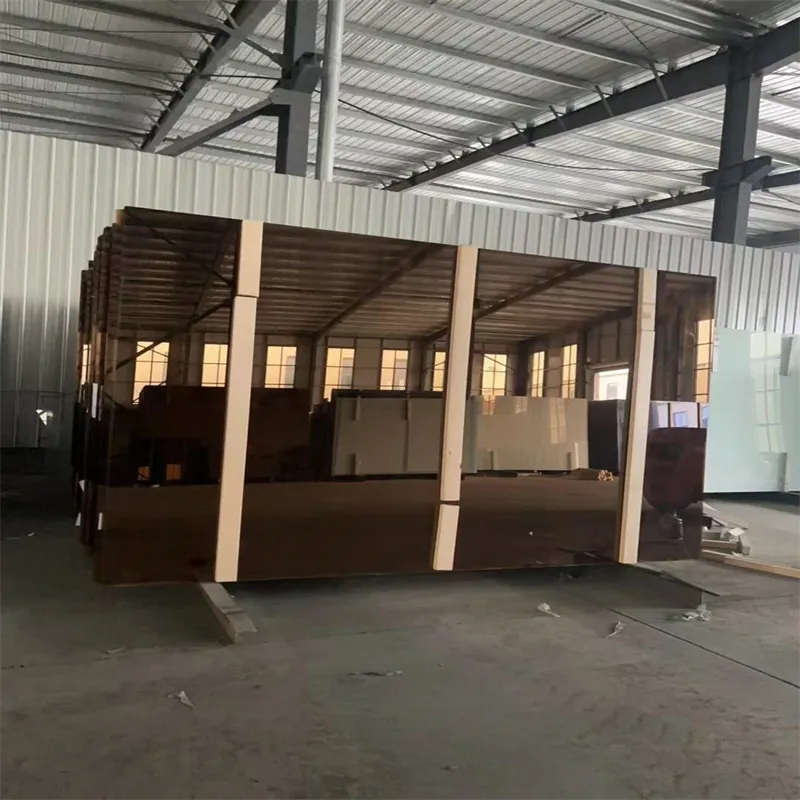Nov . 05, 2024 13:53 Back to list
float glass suppliers
Understanding Float Glass An Insight into Float Glass Suppliers
Float glass, a crucial material in various industries ranging from construction to automotive, is known for its superior clarity and uniform thickness. The production process involves floating molten glass on top of molten tin, resulting in a flat, smooth surface that is perfect for a variety of applications. As the demand for high-quality float glass continues to rise, reliable float glass suppliers play a pivotal role in ensuring that industries have access to this essential material.
The Float Glass Manufacturing Process
The manufacturing of float glass begins with raw materials, primarily silica sand, soda ash, and limestone. These elements are mixed together and heated at high temperatures to form molten glass. The molten glass is then carefully poured onto a large bath of molten tin. The glass floats on the tin, which helps in achieving a perfectly flat surface. This method, known as the float process, not only produces glass that is flat but also free of imperfections, making it suitable for applications where clarity is of utmost importance.
Key Properties of Float Glass
Float glass is praised for its excellent optical properties, which include high transparency and low distortion. It also exhibits good thermal stability and can withstand temperature fluctuations, making it viable for various environments. Additionally, float glass can be treated or coated to enhance its properties, such as adding reflective or tinted films for energy efficiency in buildings. This versatility makes float glass a popular choice for windows, facades, and even glass doors.
The Role of Float Glass Suppliers
Float glass suppliers serve as intermediaries between manufacturers and industries, ensuring that high-quality float glass is readily available. They play a critical role in several aspects
1. Quality Assurance Suppliers often have stringent quality control measures in place, ensuring that the float glass delivered to customers meets industry standards. This includes checks for clarity, thickness, and any potential defects.
2. Variety of Products Float glass suppliers typically offer a wide range of products, including different thicknesses, sizes, and finishes. This variety allows customers to choose glass that best fits their specific needs, whether for residential, commercial, or industrial use.
3. Customization Many suppliers also provide customization options, allowing customers to request specific dimensions or treatments for their float glass. This tailored approach helps meet the unique requirements of different projects.
float glass suppliers

4. Technical Support Knowledgeable suppliers often provide technical support and advice to customers, helping them understand the best applications for float glass and how to handle it effectively. This expertise can be invaluable in ensuring that projects run smoothly and meet expectations.
5. Logistics and Distribution Reliable suppliers also manage the logistics of transporting float glass, which can be delicate and expensive. Proper handling and timely delivery are crucial to maintaining customer satisfaction and avoiding project delays.
Choosing the Right Supplier
When selecting a float glass supplier, several factors should be considered
- Reputation Look for suppliers with a solid reputation for quality and reliability. Reading customer reviews and testimonials can provide insight into their service level.
- Certifications Ensure the supplier has the necessary certifications, which indicate compliance with industry standards. This can be critical for certain projects that require specific certifications for safety and performance.
- Experience An experienced supplier usually has a better understanding of market trends and customer needs, which can translate into better service and product options.
- Price Competitiveness While pricing is important, it should not be the sole determinant. The quality of the product and the level of service provided are equally essential.
Conclusion
In conclusion, float glass is an indispensable material utilized across numerous sectors, making float glass suppliers key players in the supply chain. Their role in assuring quality, providing a variety of options, and supporting customers with technical expertise and logistics cannot be overstated. By choosing the right supplier, businesses can ensure they have access to high-quality float glass that meets their specific needs, ultimately contributing to the success of their projects. As the market continues to evolve, suppliers that adapt to new technologies and customer demands will stand out in this competitive industry.
-
Safety and Style with Premium Laminated Glass Solutions
NewsJun.24,2025
-
Reinvents Security with Premium Wired Glass
NewsJun.24,2025
-
Premium Float Glass Line for Modern Architecture
NewsJun.24,2025
-
Low Emissivity Glass for Energy-Efficient Architecture
NewsJun.24,2025
-
High-Performance Insulated Glass Solutions for Modern Architecture
NewsJun.24,2025
-
Elevates Interior Style with Premium Silver Mirror
NewsJun.24,2025
Related PRODUCTS














